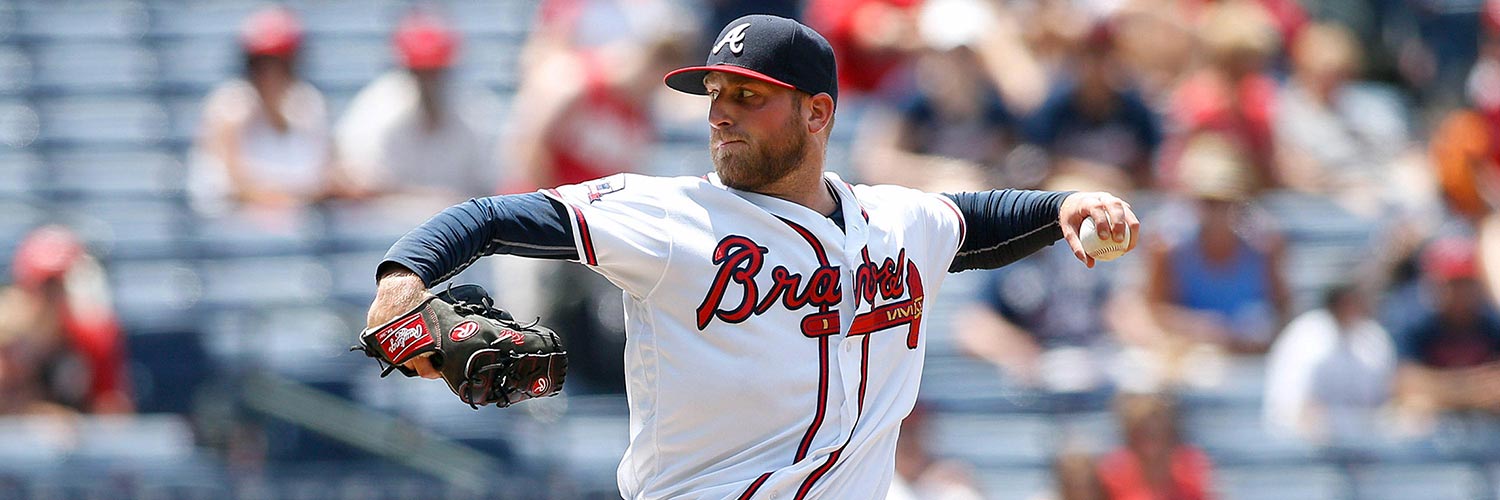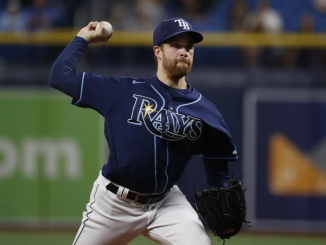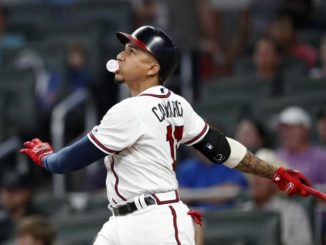
Atlanta trades either cash or a player to be named later (TBD) to the Los Angeles Dodgers for IF/OF/PR Micah Johnson
Atlanta signs RHP Arodys Vizcaino to a 1 year, $1,550,000 deal.
Atlanta signs LHP Ian Krol to a 1 year, $900,000 deal.
Two days after trading speedster Mallex Smith to the Mariners in order to acquire a top prospect in Luiz Gohara, Atlanta effectively replaced Smith’s speed by trading for LA’s Micah Johnson. They also avoided arbitration with two key members of the bullpen.
Meet Micah Johnson
Do you miss Mallex Smith, Braves fans? If so, you might like Micah Johnson. Offensively, their games are similar. Like Smith, Johnson may not make particularly consistent contact, but he has some knowledge of the strike zone, and scouts seem to think he’ll get on base enough to make himself somewhat useful, especially against right-handed pitchers. Once on base, he can use his plus-plus speed (that’s scout lingo for “he fast”) to wreak havoc as he has done throughout his minor league career. Last year he was 26 for 37 stealing bases, more than 70% successful. In 2015, he was 31/40 (77.5%). In 2013, he stole a whopping 87 bases at a 76% clip. There’s reason to think his offense could improve, even. There’s a non-zero chance he’s better offensively than Mallex Smith over the next 3 years.
Johnson is more versatile than Smith, mostly playing 2B but getting some time in the OF as well. Versatility, unfortunately, doesn’t equate to effectiveness, and defensive metrics universally see him as a liability at second. Atlanta would be well advised to give him more time in the outfield, where he could better utilize his speed.
If Johnson can develop into a useful outfielder (he’ll be 26 next year, making him neither a serious prospect or a player we should give up on) or improve his play at the keystone, he could reasonably be a reliable bench player for a contending MLB club, pinch-hitting against righties, pinch-running in key moments, and relieving any statuesque outfielders (hello, Matt Kemp!) in the late innings. If not, he’ll still have some marginal value as an up-and-down AAAA-type player with a singular carrying tool, at least until he’s inevitably DFA’d for a prospect of significance. Either way, the Braves could have done worse than adding a player like Johnson at the mere cost of “cash or a PTBNL”. It’s a low risk, medium-ish reward move.
Johnson has an option remaining, so Atlanta will likely use it. I expect to see him in both Buford and Smyrna this year.
Avoiding Arbitration

Avoiding arbitration is always a nice thing for teams to do, more so for psychological than monetary reasons. At hearings, teams tend to get particularly nasty toward their players, focusing on their worst attributes as a ballplayer and why those attributes should keep their contract low, as low as the number the team offered. It gets contentious, and if possible, you’d like players to avoid that.
Atlanta managed to do just that for 2017, as they’ve done all but once in the last decade, signing Arodys Vizcaino and Ian Krol to one year deals. Both, like most arbitration deals, are bargains for the team. Vizcaino should be a key member of the ’17 bullpen. While his ERA of 4.46 caused some consternation last year, advanced statistics suggest he was a tad unlucky with hit allowance and hit sequencing. His FIP of 3.66 and Deserved Run Average of 3.20 are far more comforting, and he should continue to be an asset going forward. MLBTradeRumors projected Vizcaino to earn $1.6M, so Atlanta seems to be seeing some slight savings on this deal.
Krol is a riskier bet, which is why he’s a significantly cheaper bet. Krol had been more or less a disaster prior to arriving in Atlanta, but he was better across the board in ’16 than ever before. Walks and home runs were down, strikeouts and ground balls were up. His ERA of 3.18 was impressive, and his DRA of 2.95 was even more so. Relievers are volatile by nature, though, especially those who have put together only a single great season. There’s no guarantee Krol can keep up his excellent pitching, particularly when you consider the upcoming absence of pitching coach Roger McDowell. McDowell clearly had an effect on Krol, who threw his 2-seam fastball significantly more than in 2015 and refined his breaking pitch into a slider than became a ground-ball machine. The Braves hope Krol can maintain his adjustments with new pitching coach Chuck Hernandez, but if he can’t, the team is only out $900K. MLBTradeRumors projected Krol to earn $1M in arbitration, so again, it seems like Atlanta is seeing some slight savings.




Leave a Reply